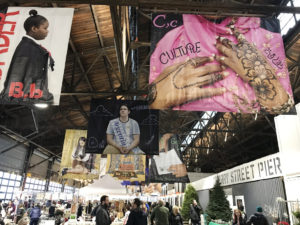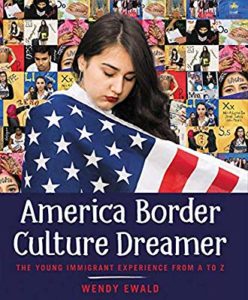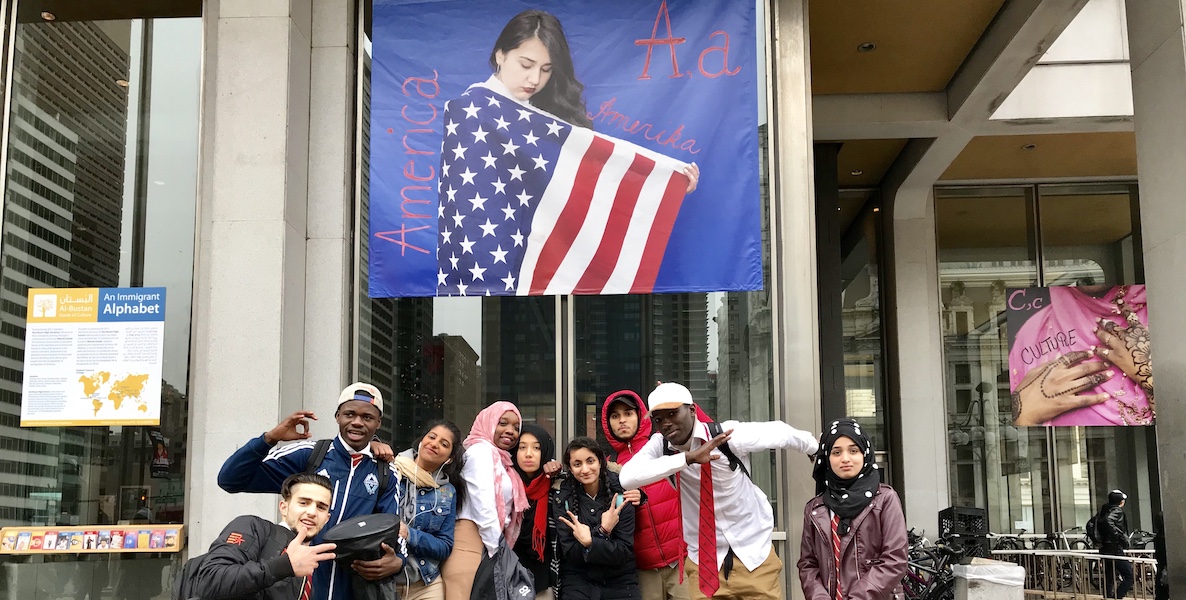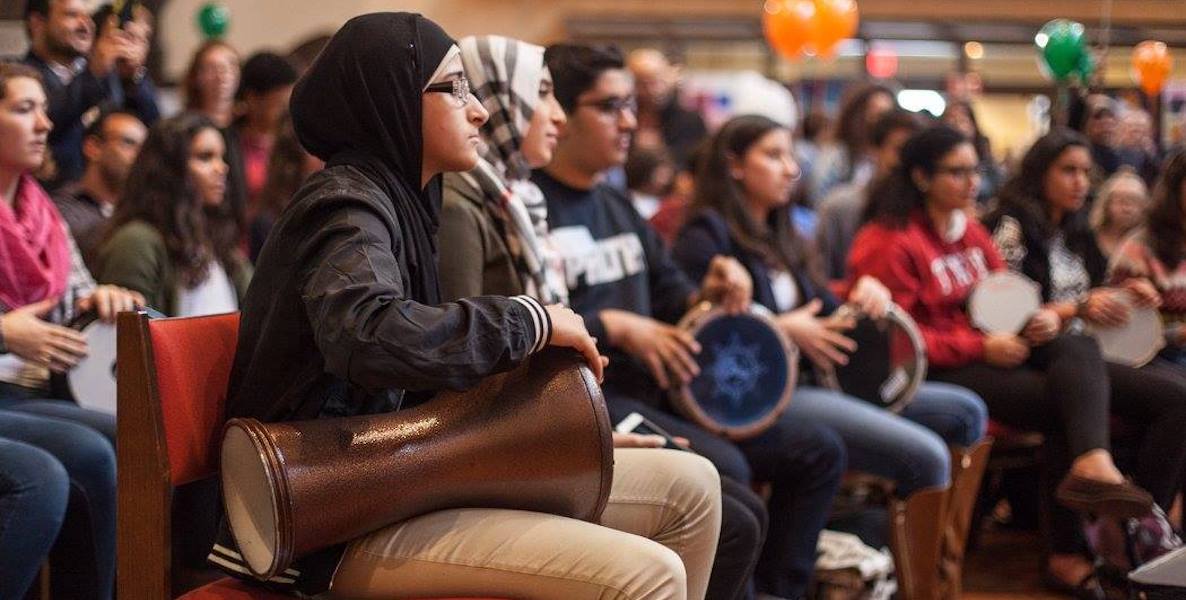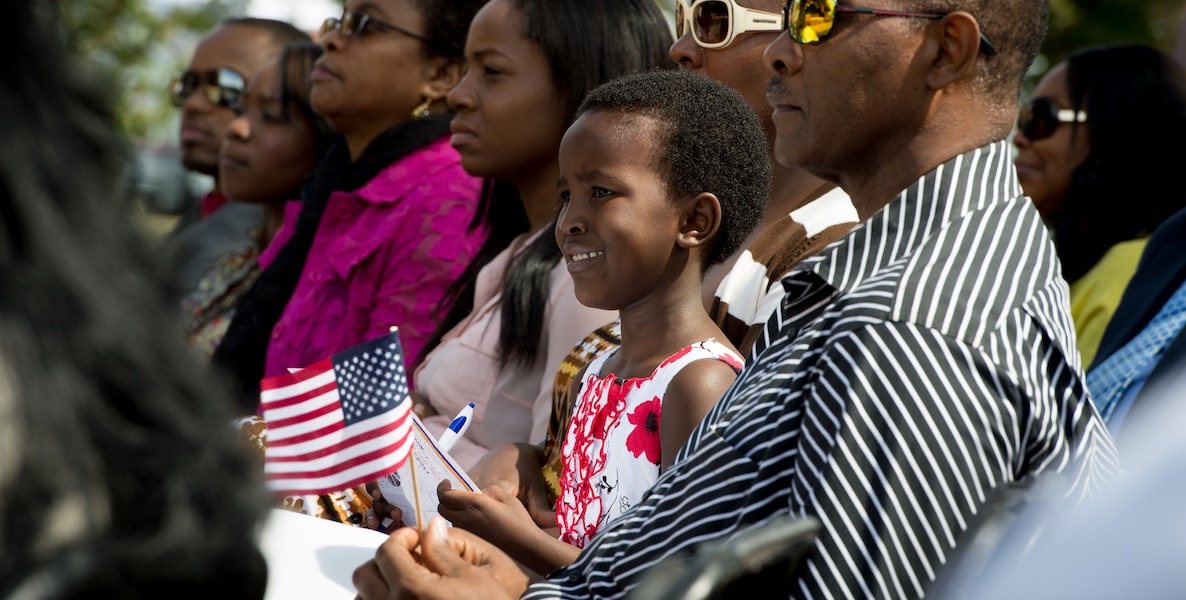Two years after Malika, a former Northeast High School student from Uzbekistan, posed with her JanSport bookbag and a copy of Milk and Honey, her larger-than-life image hangs on the front of the school. In the photo, she sits on the floor looking studious against a yellow background with words ‘Education,’ and, in Uzbek, ‘Ta’lim’ scrawled in cursive.
View, buy or sponsor a bannerDo Something
You might have seen the colorful images on the façade of the Municipal Services Building across from City Hall, where they hung from the fall of 2017 to the summer of 2018. Or at Cherry Street Pier, where an interactive installation was on display until this summer. Now, Al-Bustan is dispersing the banners throughout the city, to be displayed at schools like Northeast High, businesses, organizations, and public institutions.
A few of the banners are already spoken for: I for Immigrant is displayed at the Nationalities Services Center and E for Education at Northeast High School. Later this fall, the Free Library will hang C for Culture, a photo of hennaed hands over bright pink fabric worn by Salawat Adam, a student from Sudan, in their new Heim Center for Cultural and Civic Engagement. That banner, as well as the complete collection of images along with interviews with students encapsulated in the book America Border Culture Dreamer: The Young Immigrant Experience from A to Z , was recently added to the library’s special collection. The content aligns with the current focus of the acquisition team: filling in the gaps in the historic narratives the collections represent.
According to the Free Library’s Deputy Director for Enrichment and Civic Engagement, Andrew Nurkin, the new space shares the goals of An Immigrant Alphabet. “It’s about deepening the understanding of how the story of America is one of many many cultures and how we can become a more inclusive, welcoming and multicultural city and country,” he says.
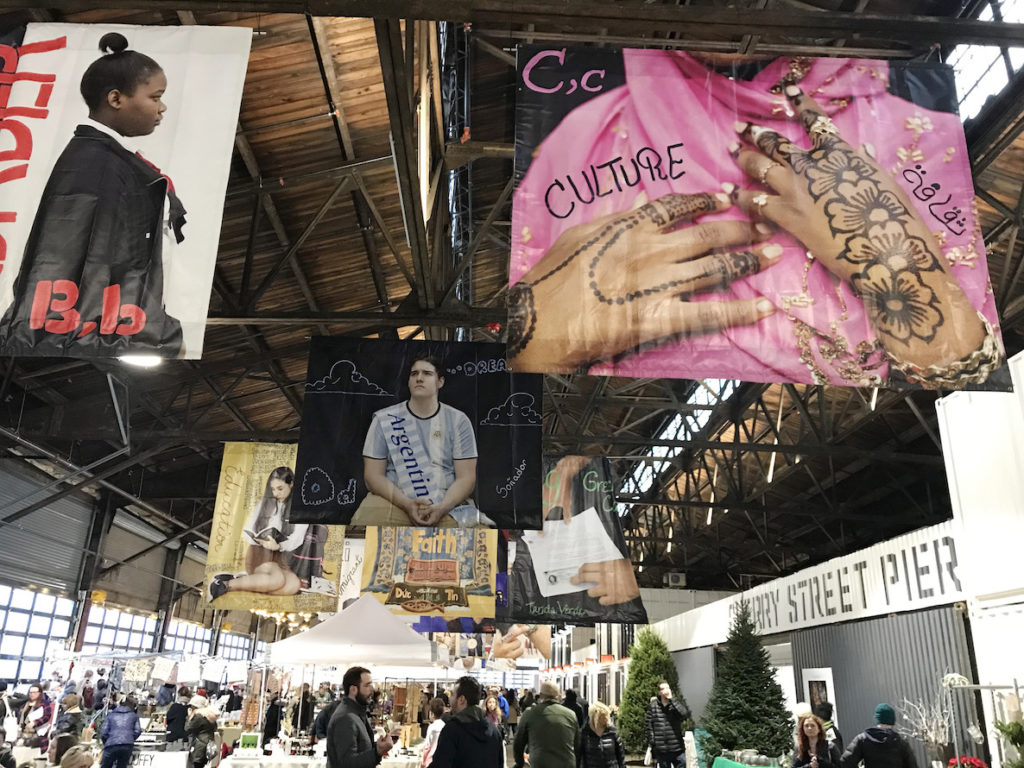
The Free Library has long had a commitment to being a place of inclusion and resource for all immigrants (check out their English Language Learners programs, New American Corners in many library branches, and programs like Edible Alphabet). The banner is another public display of that commitment that Nurkin hopes will spark conversations and promote understanding. “We see a role for the Free Library to counter anti-immigrant rhetoric on the national stage, both in this moment and in the future,” he says.
“Unless you’re Native American, your family came from somewhere else,” says Suellen. “It’s important for people here to be accepting of people to come and have the same privileges that they have and maybe take for granted.”
The exceptional timing of the project has accentuated its impact over the past three years. Though the idea for An Immigrant Alphabet started well before November 2016, the students work ended up coinciding with President Trump’s first months in office. As he signed executive orders to suspend the issuance of visas to people from seven Middle Eastern countries, cut the number of refugees to be admitted to the U.S. in half and withhold federal funding from Sanctuary cities (Philly sued over this and won), 18 first and second generation immigrants and refugees at the most diverse high school in the tri-state area were making sense of their own stories and preparing to share them with Philadelphia.
See how the project was createdVideo
When the students images were displayed outside of the Municipal Services Building, they were viewed by thousands of people every day. “The banners were unapologetically there, declaring this is what it’s like to be an immigrant and this is how our young people feel about their immigration, and these are the questions, struggles and victories they have under their belts,” says Symbol Lai, deputy director of the Office of Immigrant Affairs, which is on the 14th floor of the building.
And in the three years since they began the project, many of the students have become spokespeople for immigration issues. Suellen, a student from Brazil, had the opportunity to speak directly to Mayor Kenney, to share her story and show her appreciation for his commitment to being a welcoming city for immigrants. Now she has high hopes for the next life of An Immigrant Alphabet.
“I just hope that people that have been kind of ignorant or never stopped to think about the subject and how important it is, I hope that this project gets to them,” she says. She hopes it inspires empathy for immigrants’ experiences and causes them to think about their own background. “Unless you’re Native American, your family came from somewhere else,” she says. “It’s important for people here to be accepting of people to come and have the same privileges that they have and maybe take for granted.”
Buy the bookRead More
Who should consider purchasing a banner? According to Al-Bustan Seeds of Culture founder and executive director Hazami Sayed, “Any place that believes a nation welcoming or embracing immigrants is an asset, is a strength, and is what makes American great.”
Participants in creating An Immigrant Alphabet and members of Northeast High School’s "Al-Amal (Hope) Percussion Ensemble” strike a pose after performing at Thomas Paine Plaza, Dec 2017. Photo courtesy Al-Bustan Seeds of Culture

